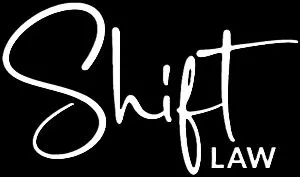- in Canada
- with readers working within the Property and Law Firm industries
It may be April Fools' Day, but the amendments to the Trademarks Act and Regulations coming into force today are no joke. The amendments, which will have a significant impact on trademark practice, are meant to increase the efficiency of trademark dispute resolution and to deter behaviours in proceedings that would cause undue delay or added expense. They include the amendments that we wrote about previously here before their coming into force and that we describe further below.
The Canadian Intellectual Property Office has issued helpful Practice Notices with further details and guidance on the implementation of some of the changes to trademark practice that the amendments will necessitate.
Amendments to the Regulations
Cost awards
The amendments to the Regulations will empower the Trademarks Opposition Board (the "TMOB") to order one party to a contentious proceeding to pay a portion of the other party's costs. Cost awards are common practice in Canadian courts, which typically order the losing party to pay a portion of the winning party's costs, but until now this has not been available in the TMOB.
Costs awards in the TMOB will not be limited to the winning party. They can be awarded to either party and are meant to deter certain conduct such as causing undue delay in proceedings, withdrawing a request for a hearing less than two weeks before the hearing and other conduct that tends to unnecessarily increase another party's legal costs. Up until now, parties could (and often did) engage in this conduct without any repercussions.
Confidentiality orders
The amendments to the Regulations will also include confidentiality orders - another practice that is available in the courts but has, until now, been unavailable in the TMOB. Until now, all evidence filed in the TMOB has been publicly accessible. As a result, parties have often withheld commercially sensitive but relevant evidence in an opposition proceeding before the TMOB and have only added it to the record under a confidentiality order on an appeal to the Federal Court.
A confidentiality order can now be requested by either party in a TMOB proceeding. The request will need to:
- clearly describe the evidence that the party wishes to keep confidential;
- state that the evidence has not been made public;
- provide the reasons why the evidence should be kept confidential;
- indicate whether the other party in the proceeding consents to the request; and
- include any other information that the Registrar requires in order to make a decision with respect to the request.
A party requesting a confidentiality order will also be expected to keep the proposed confidential information to a minimum and explain why alternatives to the confidentiality order (like redacting the sensitive information) aren't reasonable. In coming to a decision, the Registrar will still ultimately be tasked with weighing the benefits of keeping the information confidential against the negative effects of denying the public access to the full record in the proceeding.
Case management
The amendments to the Regulations will also allow proceedings before the TMOB to be case managed – yet another practice that is common in the courts but available in the TMOB until now. The Act and Regulations prescribe strict timelines for each of the steps to be taken throughout a TMOB proceeding that, until now, could only be varied through the granting of leave in response to a formal request. The amendments will give the TMOB more flexibility to vary prescribed timelines through case management much like the Federal Court can order schedules in case managed proceedings that depart from the statutorily prescribed timelines.
Case management will only be granted where the TMOB deems it to be necessary. When deciding whether to grant case management the TMOB will need to evaluate all of the surrounding circumstances. Some of those circumstances will include the complexity of the proceeding, whether there are a related proceedings that ought to be coordinated and whether there have already been significant delays in the proceeding.
Trademarks Act Amendments
Official marks
"Official marks", a unique creature of Canadian trademark law, are marks that are adopted and used by a public authority and are meant to protect well-known and respected symbols from being exploited. For a party to qualify as a "public authority", the Canadian government must exercise a sufficient degree of control over its activities and the activities have to confer a benefit to the public. Unlike traditional trademarks, official marks are not limited in scope to specific goods and services. They effectively prohibit their use or registration, or the use or registration of a similar mark, by others with any and all goods and services, absent the consent of their owner. Because of their unlimited scope, official marks are often cited by trademark examiners as obstacles to pending trademark applications even when there is no risk of confusion in the marketplace and even when the official mark was abandoned long ago.
A new amendment to the Act will allow the Registrar to, on its own initiative or at the request of a party, give public notice that the prohibition against the use of a particular official mark no longer applies if the owner is not a "public authority" or has ceased to exist. Up until now, if a party wanted to challenge a party's status as a public authority it would have to seek an order in the Federal Court.
New evidence on appeals from the TMOB
Section 56(5) of the Act has, until now, allowed a party to an appeal of a TMOB decision to file evidence in the Federal Court that was not before the TMOB. Section 56(5) will now require a party to seek and obtain leave to file new evidence. This amendment is aimed at encouraging parties to be thorough in their evidence preparation in order to put their best foot forward in the TMOB proceeding. As noted above in relation to confidentiality orders, parties often chose not to file evidence in the TMOB that they considered to be confidential, relying on the opportunity to file it confidentially in an appeal to the Federal Court if needed.
Showing use before bringing infringement action
It is foundational to Canadian trademark law that trademark rights arise from the use of a mark in the marketplace. However, since amendments to the Trademarks Act in 2019, it has been possible to obtain a registration for a trademark in Canada before actually using it. This has allowed the owner of a recently issued registration for a trademark that has yet to be used in the marketplace to commence an action for trademark infringement against a party who is using the mark or a similar mark.
Section 53.2(1.1) of the Act seeks to fix this incongruity. The provision now requires the owner of trademark registration who commences an infringement action in the first three years of registration to show that it has already used the mark.
****
Overall, we expect that these amendments will improve trademark practice in Canada and will achieve their goals of increasing efficiencies and deterring certain conduct.
The content of this article is intended to provide a general guide to the subject matter. Specialist advice should be sought about your specific circumstances.


